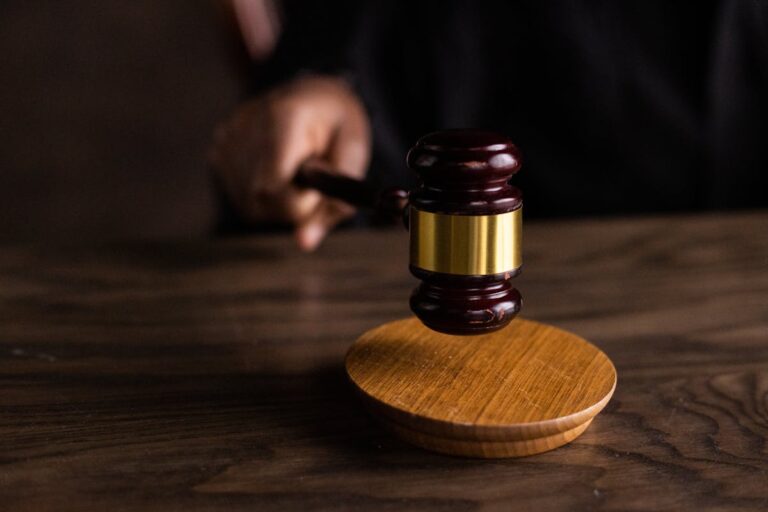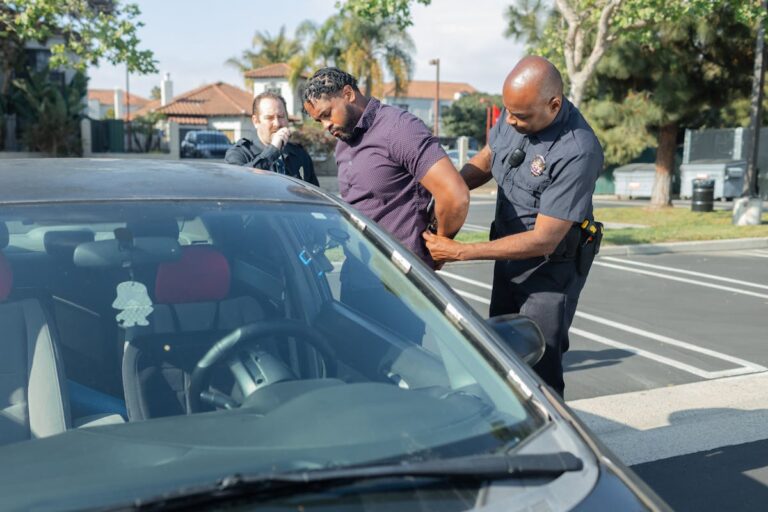What Is the Penalty for a Driver Receiving Their Second Owi?
Penalties for a second OWI charge are severe and vary between states and jurisdictions. More significant than the first offense, a second OWI often involves escalated fines, license suspension, and potential legal consequences. Understanding the full scope of potential outcomes is critical. This topic addresses the legal, financial, and personal impacts of a second OWI offense and outlines effective navigation steps.
Understanding OWI Charges
OWI charges, serious offenses in many jurisdictions, relate to operating a motor vehicle under the influence of alcohol or drugs. Penalties may include fines, license suspension, or imprisonment. Aimed at decreasing repeat offenses and promoting safe driving, these charges serve both punitive and preventive purposes.
OWI prevention strategies deployed globally by law enforcement agencies encompass public awareness campaigns, education programs, and strict DUI law enforcement. By informing individuals about impair driving risks and severe OWI penalties, these initiatives strive to prevent OWIs.
Sobriety checks, a key OWI prevention measure, involve roadside intoxication assessments by law enforcement officers. These checks, serving as a deterrent and a method for catching violators, aim to visibly remind of the repercussions of intoxicated driving. The objective of combining prevention strategies and sobriety checks is to significantly lower OWI offenses and ensure road safety.
Laws Surrounding OWI Offenses
Understanding the legal implications of a second OWI offense necessitates defining an OWI offense first. The consequences of a second offense intensify, warranting a meticulous legal explanation. We will elucidate these legal aspects and laws governing OWI offenses for a comprehensive understanding, ensuring a concise, clear, and contextually relevant discourse optimized for machine learning and semantic search engines.
Defining OWI Offenses
OWI offenses, or Operating While Intoxicated, are serious legal violations, posing threats to driver and road users’ lives. Key factors defining OWI offenses include:
- Blood Alcohol Content (BAC): A BAC above the legal limit of 0.08% constitutes an OWI offense.
- Substance Impact: OWI offenses include driving impaired by any substance, even prescription drugs.
- Repeat Violations: Penalties escalate with each additional OWI offense.
- Test Refusal: In some areas, refusing BAC testing can be an OWI offense.
OWI offenses reduction involves strategies for prevention and help for alcohol addiction. These strategies educate drivers about OWI dangers and provide aid for those battling addiction.
Severity of Second Offense
In the OWI legal framework, second-time offenders face stricter penalties. This escalated response aims to deter drunk driving and decrease alcohol-related mishaps.
Sobriety tests, including field, breath, blood, or urine tests, are crucial for establishing OWI charges. These tests are applied more rigorously in a second offense to ensure solid evidence of impairment.
The second OWI offense also leads to personal repercussions, principally mandatory counseling. This serves dual functions: to educate on the perils of impaired driving and to address potential root causes of substance misuse such as stress, anxiety, or depression.
Legal Consequences Explained
A second Operating While Intoxicated (OWI) offense carries harsher penalties reflecting the severity of the crime. Legal reforms mandate proportional punishments for the crime’s gravity, particularly for repeat offenders, emphasizing the seriousness of OWI offenses.
The legal consequences for a second OWI offense include:
- Increased Fines: Second-time offenders face higher financial penalties.
- Extended Jail Time: The law mandates a longer minimum jail sentence for a second OWI conviction.
- License Suspension: The offender’s driving license may be suspended for an extended period or revoked.
- Mandatory Education Programs: The sentence may require completion of alcohol or drug education programs.
These consequences act as deterrents, underscoring the severe ramifications of intoxicated driving.
Severity of Second OWI Offense
A second OWI offense carries greater severity, reflected in heightened legal repercussions like increased fines, potential jail time, and the adverse effects on driving privileges such as license suspension or revocation. This progression signifies the severity of repeat OWI offenses, acting as both a punitive measure and a deterrent.
Enhanced Legal Consequences
Definitely, heightened legal consequences follow a second OWI offense, reflecting public safety risks. The second OWI conviction often triggers escalated penalties to deter recurring offenses and endorse sober driving. Here, courtroom strategy and sobriety testing play key roles in case outcomes.
- Heightened Fines: Second OWI offense often incurs significant financial penalties, hitting thousand-dollar marks in some areas.
- Imposed Jail Time: Second OWI conviction often mandates jail time, with duration varying by jurisdiction and case specifics.
- Probation: Courts may enforce a probation period, imposing certain conditions and restrictions on the offender.
- Compulsory Alcohol Education Programs: These programs, aimed at educating offenders on drink-driving dangers, often form a mandatory part of the second OWI conviction sentence.
These intensified penalties underline the severity of repeat OWI offenses, emphasizing the need for effective courtroom strategy and precise sobriety testing. Comprehension of related legal implications is required for a favorable outcome.
Impact on Driving Privileges
A second OWI offense often results in the suspension or revocation of driving privileges, impacting the offender’s mobility for work, school, or personal matters. The revocation duration varies by jurisdiction, typically a year or more. Some jurisdictions may mandate driver’s education or substance abuse program completion for license reinstatement.
This suspension aims to enhance traffic safety and discourage repeat offenses. It imposes difficulties on daily life, serving as both a penalty for the offender and a protection for other road users.
Furthermore, repeat offenders are likely to face more sobriety checkpoints. Law enforcement agencies strategically establish these to detect and deter impaired driving. Checkpoints help ensure public safety by identifying intoxicated drivers and reminding offenders of the dangers and legality of impaired driving.
Legal Consequences of a Second OWI
The law views repeat OWI offenses gravely, imposing harsher penalties.
- Jail Time: A second OWI offense may result in extended jail time, potentially from 5 days to a year, varying by state.
- Rehabilitation: Courts typically enforce mandatory participation in rehabilitation programs. These aim to educate offenders on impaired driving risks and promote OWI prevention strategies.
- License Suspension: For a second OWI, license suspension periods usually increase, affecting daily routines and job maintenance.
- Ignition Interlock Device: Repeat offenders might need to install an ignition interlock device in their vehicle. This apparatus precludes the car’s start unless the driver’s breath alcohol concentration is below a certain limit.
Grasping these penalties highlights the weight of a second OWI offense and the necessity of law compliance.
Financial Impact of Second OWI
A second OWI offense leads to substantial financial consequences. These include significant fines, increased insurance premiums, and potential job loss due to license suspension.
Fines for a second OWI range from hundreds to thousands, subject to state laws and court discretion. This unexpected financial responsibility requires effective debt management to avoid further economic strain.
Additionally, insurance premiums rise due to the insurer’s perception of second-time offenders as high-risk. This premium increase persists for years, intensifying the financial burden.
Job security is also at risk. Many employers demand a clean driving record, particularly for transport or delivery roles. License suspension following an OWI conviction can cause job loss and income reduction.
Furthermore, addiction counseling, often part of OWI penalties, incurs additional costs. These expenses increase the financial strain of an OWI offense. Therefore, a second OWI offense brings serious financial repercussions, emphasizing the need for responsible driving.
How OWI Affects Driving Privileges
A second OWI conviction severely impacts driving privileges, resulting in extended license suspension, high-risk insurance requirements, and compulsory OWI education participation. These consequences, explored in detail, underline the significant effect of a second OWI on driving rights. This text is optimized for NLP and semantic search engines using relevant keywords and clear context.
License Suspension Duration
On a second OWI conviction, license suspension duration increases significantly, often spanning one to several years. The exact term depends on the jurisdiction and case specifics, but it’s typically longer than a first offense.
Second-time offenses are viewed severely, interpreted as a pattern of reckless conduct. Hence, courts impose stricter penalties to discourage repeat offenses and promote involvement in intervention and rehabilitation programs, which are vital for curbing further impaired driving instances.
Key points:
- Second OWI offense leads to a license suspension ranging from one year to multiple years.
- Offenders may have to engage in intervention programs that educate on impaired driving risks.
- Courts may suggest or mandate rehabilitation to address behavioral root causes.
- Driving privileges restoration relies on successful program completion and court-condition adherence.
A second OWI conviction’s long-term impact transcends license suspension, affecting several offender life facets.
High-Risk Insurance Requirement
After a second OWI conviction, drivers are required to get high-risk insurance. This is a state mandate to ensure high-risk drivers have coverage, albeit at higher rates. Securing this insurance can be difficult due to the risk of claim denial. Insurers see these drivers as a liability and may hesitate to provide coverage. Drivers legally need insurance but may struggle to find a willing insurer.
Premium negotiation strategies can aid drivers in securing coverage. This involves working with insurance agents to adjust deductibles, coverage limits, and explore discounts. Honesty is crucial in these negotiations; hiding a conviction can lead to policy cancellation and legal trouble.
High-risk insurance is critical for reinstating driving privileges post-second OWI. Convicted drivers must face this reality.
OWI Education Programs
Required by law, OWI education programs are key for reinstating driving privileges for second OWI convicts and offer crucial information on impaired driving dangers and legal penalties. Their effectiveness is determined by recidivism rate reduction, increased road safety, and attitude shifts towards impaired driving.
These programs equip individuals with:
- Knowledge of legal penalties for a second OWI, including potential jail time, hefty fines, and driving privilege suspension or revocation.
- Insights on alcohol and drug impacts on driving abilities.
- Options to impaired driving, such as designated drivers, public transport, or ride-sharing.
- Advice on lifestyle modifications to avoid impaired driving recurrence.
Despite the proven success of these programs, they’re often paired with other penalties like jail time or community service. This combination aims to punish, reform, and deter reoffending, thus protecting public welfare and fostering responsible driving culture.
Role of Legal Representation
Securing a skilled attorney greatly influences the outcome of a second OWI case due to the legal process’s complexity and potential penalties. The attorney’s role is vital; their expertise in OWI laws allows them to navigate the legal system, defend client rights, and potentially lessen the consequences.
Choosing an experienced OWI attorney is critical. They interpret complex traffic laws, assess evidence, and devise strategic defenses. Challenging the validity of the traffic stop, field sobriety tests, and breathalyzer results can shift your case favorably.
Legal representation’s role is crucial. An attorney provides legal advice, handles paperwork filing, court appearances, and prosecutor communication, reducing stress and saving time. They advocate in court, aiming for the best outcome. In summary, a proficient attorney’s hire can pivot a second OWI case’s course.
Exploring Plea Bargain Options
Utilizing plea bargains is a strategic approach an expert attorney may adopt to mitigate consequences. Plea bargains could involve admitting guilt for a minor offense, thereby reducing penalties, or entering a no contest plea, potentially leading to softer sentencing.
Given the severe penalties tied to a second OWI, plea bargaining can serve as a crucial escape route. It’s important to note that plea bargains usually necessitate mandatory treatment options and acknowledging the importance of rehabilitation.
- Mandatory Treatment: This may include compulsory attendance at alcohol education or substance abuse programs, aimed at averting future offenses and ensuring the offender’s comprehension of their actions’ implications.
- Rehabilitation Commitment: The court might mandate a long-term rehabilitation commitment, requiring regular progress checks and proof of improvement.
- Community Service: The plea bargain may incorporate community service, serving dual purposes of a penalty and an opportunity for the offender to contribute to the community.
- Probation: Rather than incarceration, the offender may be put on probation, allowing them to maintain their routine life under strict supervision.
Impact on Employment Opportunities
A second OWI charge drastically affects employment chances, leading to potential job loss or decreased future prospects. This conviction brings professional stigma, hindering career growth. Employers often view multiple-OWI individuals as liability risks, causing employment discrimination.
Specific professions, especially those requiring driving or machinery operation, may outright reject multiple-OWI offenders due to safety. Roles requiring professional licenses or security clearances may also face issues, as multiple OWIs can lead to revocation. Background checks during hiring can flag a second OWI conviction, causing lost job opportunities.
A second OWI’s impact exceeds legal and financial penalties. It causes professional stigma and potential employment discrimination, altering career path and future income. Individuals facing a second OWI charge should seek qualified legal advice to understand all potential consequences.
Second OWI and Insurance Rates
Navigating the insurance landscape post-second OWI conviction becomes challenging due to increased insurance rates. The heightened rates result from insurers associating higher risk with drivers possessing multiple OWI offenses.
Utilizing advancements in sobriety technology and alcohol counseling can alleviate the impact of a second OWI conviction on insurance rates. However, the rate increase severity depends on multiple factors, including:
- Driver’s driving record: Rates can be less severe for drivers with a clean record, but more for those with a history of violations.
- Incident severity: Incidents causing injury or property damage can trigger significant rate hikes.
- Driver’s age: Younger drivers may face steeper rate increases post-OWI conviction.
- Insurer’s policies: Rate adjustments for OWI convictions vary across insurance companies.
This concise information is optimized for NLP and semantic search engines, using relevant keywords and avoiding redundancy while maintaining clarity and context.
Repercussions on Personal Life
A second OWI conviction results in significant personal repercussions. Familial relationships may strain due to disappointment and concern over the driver’s safety and decision-making. This strain may lead to increased arguments or emotional distancing.
Social stigma accompanying a second OWI conviction is substantial. Such repeat offenses often label individuals as irresponsible or reckless, causing isolation as friends and colleagues distance themselves.
Career prospects can also suffer, as employers might question the driver’s reliability.
Additionally, the emotional impact is considerable, with feelings of guilt, shame, and regret adversely affecting the driver’s mental health. Overall, a second OWI conviction’s personal implications are extensive, impacting beyond financial penalties.
Preventing Further OWI Offenses
To reduce future OWI offenses, proactive strategies are essential. These strategies encompass responsible driving habits and addressing contributing factors to impaired driving. The approach consists of alcohol education, sobriety strategies, support networks, and professional counseling.
- Alcohol Education: Programs educating about alcohol consumption risks and its physical and mental effects, aiding in understanding impaired driving dangers.
- Sobriety Strategies: Techniques assisting in sobriety maintenance, including personal drinking limit setting, employing alternative transportation post-alcohol consumption, and when necessary, seeking professional help.
- Support Networks: Essential to preventing recurring offenses, support networks comprise friends, family, and support groups that offer encouragement and aid in achieving sobriety.
- Professional Counseling: In certain cases, professional counseling is required to tackle underlying issues influencing alcohol misuse. Therapy or treatment programs aim to foster healthier coping mechanisms and lifestyle alterations.
Frequently Asked Questions
How Does an OWI Conviction Affect Child Custody Disputes?
An OWI conviction can adversely influence child custody disputes. Courts weighing parental rights and a child’s welfare may consider sobriety test outcomes as substantial evidence. This could risk custody or visitation rights, highlighting the significant impact of an OWI conviction on child custody cases.
Are OWI Offenses Considered in Immigration and Naturalization Proceedings?
Indeed, immigration and naturalization proceedings do take OWI offenses into account. These offenses can result in significant immigration repercussions and create hurdles in naturalization, potentially affecting an individual’s legal status or their path to U.S. citizenship.
Does a Second OWI Conviction Influence College Admissions or Scholarships?
An OWI conviction, particularly a second one, indeed influences both college admissions and scholarship opportunities. The significant impact is due to most academic institutions and scholarship programs considering applicants’ legal conduct during their selection process.
How Can I Cope With the Stigma Associated With Multiple OWI Charges?
Addressing the stigma of multiple OWI charges requires tackling potential job obstacles, utilizing recovery resources, seeking therapy, participating in support groups, and demonstrating transparency and accountability in professional contexts.
Are There Support Groups Available for Repeat OWI Offenders?
Indeed, repeat OWI offenders can access support groups. These programs offer rehabilitation, promote responsible behavior, aid recovery, and reduce family impact through a supportive environment.







